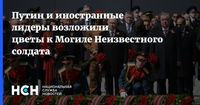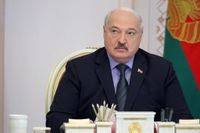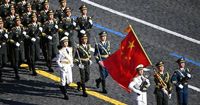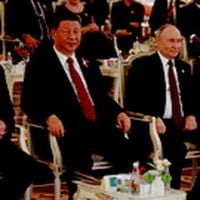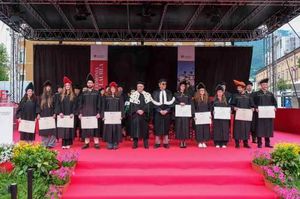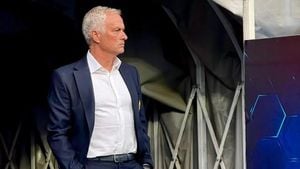On May 9, 2025, a military parade is taking place in Moscow, commemorating the 80th anniversary of the victory over Nazi Germany in World War II. This event, which is celebrated annually in Russia, has drawn significant attention both domestically and internationally, particularly due to the current geopolitical climate.
Russian President Vladimir Putin has invited numerous foreign dignitaries to join the celebrations, including leaders from China, Serbia, Brazil, Venezuela, Cuba, Mongolia, and Equatorial Guinea. However, the parade has not been without controversy, as some leaders, such as Azerbaijan's Ilham Aliyev and Laos's Thongloun Sisoulith, have declined the invitation at the last minute. This refusal follows warnings from Ukrainian President Volodymyr Zelenskyy, who stated that Ukraine cannot guarantee the safety of foreign representatives attending the event.
In addition to the high-profile guests, the parade features a display of military might, with over 10,000 Russian soldiers participating alongside troops from 13 allied nations, including Vietnam and Egypt. The presence of North Korean military personnel has also raised eyebrows, especially given recent reports of their involvement in military operations against Ukrainian forces in the Kursk region.
Amid increased security measures, significant restrictions have been placed on mobile internet services and online banking in Moscow. These precautions are likely a response to potential unrest, as the Russian government aims to maintain strict control over the narrative surrounding the event. Reports indicate that the Kremlin has allocated at least 1.5 billion rubles (approximately $18.6 million) for the celebrations, underscoring the importance placed on this annual commemoration.
During a formal dinner held at the Kremlin, President Putin raised a toast to the heroes of World War II, stating, "Today, we are witnessing the formation of a more just world order. The demand and importance of the UN are increasing again." This statement reflects Russia's desire to position itself as a leader in global affairs, particularly in contrast to the United States, which Putin and his allies have criticized for its perceived dominance.
Putin's remarks came during a meeting with Chinese President Xi Jinping, who emphasized the need for the two nations to strengthen their ties. Xi, who arrived in Moscow the day before the parade, expressed that their countries should become "friends forever." This sentiment aligns with the Kremlin's narrative of fostering a new world order that challenges Western hegemony.
The military parade itself is a display of national pride and a reminder of Russia's historical narrative surrounding World War II. Putin has often emphasized the Soviet Union's role in defeating Nazism, a theme that resonates deeply with many Russians. In his speech, he noted that the victory over Nazism was achieved through the joint efforts of various nations, including those from Europe, the USA, Africa, and Latin America.
Despite the grandeur of the event, the atmosphere is tinged with tension. The Ukrainian Ministry of Foreign Affairs has condemned the participation of foreign military personnel in the parade, labeling it an affront to the memory of the collective victory over Nazism. The ministry's statement highlights the ongoing conflict between Ukraine and Russia, which has escalated since the invasion in 2022.
As the parade unfolds, the international community watches closely. The presence of key leaders from allied nations could be seen as a show of support for Putin's regime, while the absence of others reflects the divisions that have emerged in global politics. The Kremlin's invitation to world leaders serves not only as a celebration of historical victory but also as a strategic move to bolster its legitimacy on the world stage.
In the lead-up to the event, the Kremlin had announced a ceasefire from May 8 to May 10, coinciding with the anniversary celebrations. However, this gesture has been met with skepticism by Ukrainian officials, who view it as another attempt by Russia to manipulate the narrative surrounding the conflict. Zelenskyy reiterated Ukraine's support for a ceasefire but criticized Putin's proposal as insincere.
As the parade progresses, the military might on display serves as a reminder of Russia's ongoing military ambitions and its willingness to assert itself in international affairs. The inclusion of foreign military personnel, particularly from North Korea, adds a layer of complexity to the event, signaling potential alliances that could shape future geopolitical dynamics.
In conclusion, the May 9 military parade in Moscow is not just a celebration of historical victory but a significant event that reflects the current state of international relations. The participation of foreign leaders, the display of military power, and the ongoing conflict in Ukraine all contribute to a narrative that is both complex and fraught with tension. As the world watches, the implications of this event will likely reverberate far beyond the borders of Russia.
